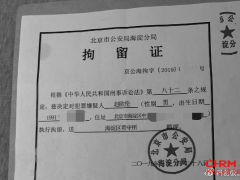A clear majority of employers in Mainland China are eager to employ an overseas returnee in the coming year, and they cite ‘language and communication skills’ to be the top benefit that returnee talent can bring to the table.
These are few of the key findings in the 2019 Hays Overseas Returnee Report, which highlights overseas returnee recruiting trends based on responses from both candidates and employers residing in the five Hays Asia operating markets in Mainland China, Hong Kong, Japan, Malaysia, and Singapore.
In the survey, Hays asked candidates who have studied or worked overseas, “Would you be willing to hire a local returnee in the next 12 months?” to which 87 per cent of employers in Mainland China say ‘yes’.
In addition, they were also asked about the benefits local returnees could bring to their organisation. While 84 per cent voted ‘language and communication skills’, this was followed closely by 79 per cent who said ‘cross-cultural awareness’ and 59 per cent who said ‘different perspectives on business’ were key advantages of having overseas returnees in their workforce.
Positive perception of overseas returnees
The global recruitment firm reveals that the high confidence in overseas returnee talent is not unfounded. Many employers report to have had a good experience with their overseas returnee staff and would, in fact, play advocate for the hiring of skilled candidates who have worked or studied abroad.
When asked about their satisfaction rates of overseas returnee staff, 52 per cent of employers in Mainland China were ‘satisfied’ and 11 per cent were ‘very satisfied’ while only two per cent were ‘unsatisfied’ or ‘very unsatisfied’. This has translated into nine in ten employers willing to recommend employing an overseas returnee to their peers.
Commenting on the findings, Simon Lance, Managing Director at Hays Greater China said, “With dwindling confidence in recruiting locally for the essential talent needed to drive growth, employers look with favour on overseas returnees who bring ample value to the table.”
“Overseas returnees are therefore in a good position to highlight their experiences whether in working or studying abroad. In particular, they could stand to benefit from displaying how their language and communication skills would help improve existing business processes and how they translate into business value. Many firms hold in high regard the international experience and local cultural understanding that overseas returnees can offer in the country’s globalised economy. Overseas returners should therefore take advantage of the existing market situation that favours them.”
Across Asia
Overall, eight in ten hiring managers across the region are keen on employing overseas returnees. The most keen employers were Hong Kong (88 per cent) and Mainland China (87 per cent), while the least keen were Japanese employers (67 per cent).
When it comes to satisfaction levels of overseas returnee employees, many employers in Asia reported above average contentment, with 40 per cent saying they were ‘satisfied’ and 13 per cent saying they were ‘very satisfied’. only three per cent are ‘unsatisfied’ and one per cent ‘very unsatisfied’. The most satisfied lot are Mainland Chinese respondents with 53 per cent and 11 per cent who were ‘satisfied’ and ‘very satisfied’ respectively. The relatively least satisfied employers are those from Japan with 7 per cent saying they were ‘very unsatisfied’.
Overseas returnees are generally coveted for their ‘cross-cultural awareness’ (voted by 72 per cent), ‘language and communication skills’ (68 per cent) and ‘different perspectives on business’ (64 per cent). While the top benefit for employers in Hong Kong, Mainland China and Japan was ‘language and communication skills’, for employers in Singapore, it was ‘cross cultural awareness’ and in Malaysia, ‘different perspectives on business’.
This has resulted in 82 per cent of employers across the board being willing to hire an overseas returnee in the coming year. The most willing was Hong Kong at 88 per cent, and the least willing was Japan at 67 per cent.
Hiring managers were also asked if they would recommend peers within their industry to hire local returnees. Nine in ten (90 per cent) said a resounding ‘yes’, with Hong Kong being the most likely to do so (94 per cent), and Japan the least likely (84 per cent).
 手机版|
手机版|

 二维码|
二维码|






